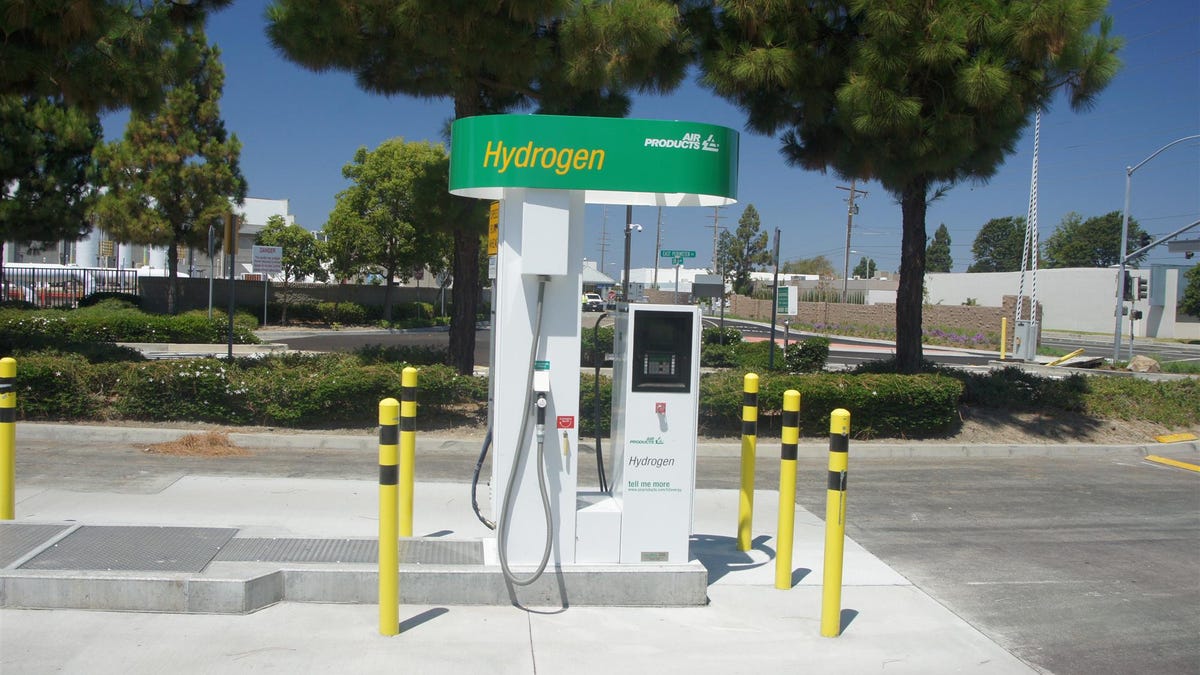Hydrogen fueling stations--they're coming
Air Products and Fuel Cell Energy have signed a Memorandum of Understanding to market a fuel cell power plant to commercial enterprises, which will pave the way for the tri-generation system to be used to create a network of hydrogen fueling stations for consumers.

Two key players in the hydrogen manufacturing arena will be working together to make hydrogen fueling stations a reality for the fuel cell vehicles that should be coming to market in the second half of this decade.
Air Products and Fuel Cell Energy have signed a Memorandum of Understanding to market stationary Direct Fuel Cell (DFC) power plants. These systems, manufactured by Fuel Cell Energy, are designed to take natural gas or renewable biogas and produce hydrogen, electricity, and heat. The three energy byproducts can be used to power and heat the production facility or nearby homes or businesses while creating hydrogen fuel for industrial fleet or consumer vehicle use.
The companies are already working together to operate a pilot facility near Los Angeles, Calif. Using captured methane generated by sewage waiting for processing at the an Orange County Sanitation District wastewater treatment facility, the DFC power plant produces hydrogen for a nearby fueling station operated by Air Products. The agreement formalizes their effort to develop a market for this clean energy solution with a low carbon footprint.
The DFC power plant is a standalone solution for companies using hydrogen-powered fleet and commercial equipment in warehouses. It offers organizations a steady supply of hydrogen fuel that doesn't require electricity to produce, and is more energy efficient than powering vehicles and equipment with natural gas. BMW is conducting a similar pilot program that converts methane from a nearby landfill to hydrogen so the auto manufacturer can power equipment and machinery at its Spartanburg, South Carolina manufacturing facility.
Initially, the DFC power plants will be used by similar industrial customers to power commercial fleets, such as hydrogen-fueled forklifts or passenger busses, that have predictable driving routes and return to the same location at night for refueling. Eventually, these systems will be built in areas that have consumer demand, such as hydrogen vehicle testing regions in California and Hawaii.
Fuel Cell Energy is also a key participant in GM's Hawaii Hydrogen Initiative. The Hawaiian island's high energy and gasoline costs in addition to its closed geographic area make it an attractive location for DFC power plants, said a Fuel Cell Energy spokesperson. However, specific locations and launch dates for consumer fueling stations were not given. The partnership is also exploring the possibility of creating a network of fueling stations in Japan and Europe.

